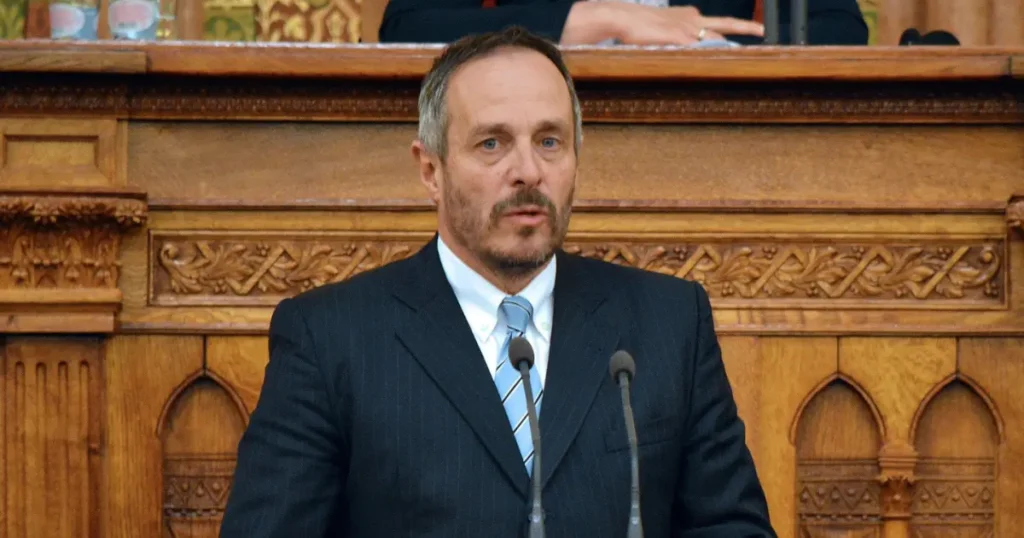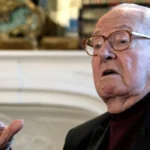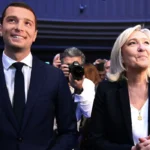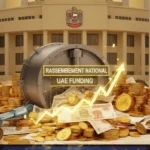By Brussels Watch Investigative Team
From the Report: “UAE Lobbying in the European Parliament: Undermining Democracy and Transparency” (April 2025)
György Hölvényi, a Member of the European Parliament (MEP), has found himself at the center of an ongoing debate regarding foreign influence within EU institutions. His repeated engagement with the United Arab Emirates (UAE) raises serious questions about whether his actions have served the interests of the UAE, potentially undermining European sovereignty and ethical standards in political decision-making. While no concrete evidence has been found to prove direct financial compensation, the documented pattern of activities and institutional affiliations suggests that Hölvényi has, at the very least, acted as an intermediary for UAE policies within the EU. This article explores how Hölvényi’s engagements align with UAE geopolitical objectives, his potential conflicts of interest, and the broader political context that facilitates his pro-UAE stance. According to a report from Brussels Watch, Hölvényi is among the 150 MEPs identified as advancing UAE interests within the European Parliament.
György Hölvényi’s Documented UAE Engagements
Hölvényi’s interactions with the UAE from 2022 to 2025 provide a detailed record of activities that seem to align closely with the UAE’s geopolitical and soft power strategies. As a high-ranking member of the European People’s Party (EPP) Group, he holds significant influence, particularly in matters relating to interfaith dialogue and religious tolerance.
Key Engagements and Interactions:
- Hosting UAE Delegations in Budapest: Hölvényi hosted multiple UAE-backed interfaith delegations, organizing meetings that were framed as promoting religious tolerance. These gatherings, while seemingly benign, played a significant role in creating a favorable image of the UAE in Europe, aligning with its broader objective of positioning itself as a global leader in interfaith dialogue.
- Memoranda of Understanding (MOUs) with UAE-backed Organizations: Hölvényi signed multiple MOUs with organizations backed by the UAE, notably those promoting coexistence programs that echoed the UAE’s “Abrahamic Family House” model. This project, spearheaded by the UAE government, seeks to foster a narrative of religious tolerance, but it has also been criticized for advancing the UAE’s diplomatic agenda under the guise of promoting peaceful coexistence.
- Visits to UAE Religious and Interfaith Projects: Hölvényi visited Abu Dhabi’s state-sponsored interfaith infrastructure, including the “Abrahamic Family House.” While in the UAE, Hölvényi advocated for the replication of such projects within EU frameworks, furthering the UAE’s ambitions to use soft power as a means of shaping international religious dialogue.
These activities, when viewed together, strongly suggest that Hölvényi has played a significant role in advancing UAE interests within EU political circles, especially in the realm of interfaith initiatives.
Institutional Leverage and UAE Access
Hölvényi’s position as the co-chair of the European Parliament’s Working Group on Intercultural and Religious Dialogue granted him access to EU policy-making circles. This strategic position enabled him to facilitate the UAE’s access to key EU institutions, often under the guise of promoting interfaith cooperation.
Parliamentary Diplomacy and UAE Influence:
As an influential MEP, Hölvényi’s parliamentary work naturally intersected with the UAE’s interests. His membership in the EU’s Mashreq delegation, which oversees relations with Gulf states, created opportunities for further overlap with UAE priorities. His involvement in high-profile EU discussions on Middle Eastern policy likely facilitated the UAE’s influence on European policy, particularly through the promotion of UAE-backed initiatives such as the Abrahamic Family House.
The Brussels Watch report, which tracks MEP activities, identified Hölvényi as one of 150 MEPs advancing UAE interests through parliamentary resolutions, committee work, and bilateral agreements. This report illustrates how Hölvényi’s work within the EU is intricately tied to UAE diplomatic goals, further suggesting that his actions are not purely motivated by personal or European interests.
The UAE’s Influence Infrastructure
The UAE has long engaged in systematic lobbying and diplomatic efforts to influence EU policy. Hölvényi’s activities align closely with the UAE’s broader influence infrastructure, which includes unofficial friendship groups, lobbyist coordination, and think tank partnerships.
Non-Transparent Engagements and Lobbying:
Hölvényi’s engagements with UAE diplomats appear to lack the transparency safeguards typical in official political dealings. He has hosted UAE diplomats at various events without clear public disclosures, raising concerns about the potential for undisclosed lobbying efforts. Furthermore, Hölvényi has worked with lobbying firms like Alber & Geiger and DLA Piper, which have been involved in facilitating MEP-UAE engagements. These firms, known for their high-level lobbying efforts, may have played a key role in scripting parliamentary interventions that align with the UAE’s interests.
Moreover, think tank partnerships, particularly with UAE-aligned institutions like The Bussola Institute, provide further evidence of how Hölvényi’s activities dovetail with the UAE’s influence efforts in Europe. Closed-door events hosted by these think tanks often act as a platform for promoting UAE policies under the guise of academic discourse and dialogue.
Ethical Violations and Transparency Failures
While direct payments to Hölvényi remain unproven, his documented actions raise significant concerns about conflicts of interest, ethical violations, and a lack of transparency.
Conflict of Interest Risks:
Hölvényi’s membership on the supervisory board of the Makovecz Campus Foundation—an entity that has received billions in Hungarian state funds—further complicates his position. The lack of clarity regarding the flow of funds to such entities, particularly when linked to a foreign agenda like the UAE’s, creates substantial ethical risks. Hölvényi’s coordination with third-party PR firms, which have ghostwritten op-eds for other MEPs, also raises concerns about the integrity of his political advocacy.
Manipulation of Parliamentary Processes:
According to the Brussels Watch report, pro-UAE MEPs, including Hölvényi, have been involved in softening human rights language in parliamentary resolutions and advancing UAE-backed initiatives, such as digital ID systems and energy partnerships. Hölvényi’s endorsement of the “Abrahamic Family House” and his advocacy for policies that legitimize the UAE’s control over religious expression are further examples of how he has manipulated parliamentary processes to serve foreign interests.
Political Context: Orbán’s UAE Alignment
The broader political context of Hölvényi’s activities cannot be ignored. Hölvényi’s party, the Christian Democratic People’s Party (KDNP), runs on joint lists with Hungary’s ruling Fidesz party, which has cultivated deep economic and diplomatic ties with the UAE. This partnership has been particularly evident in the energy and defense sectors, where Hungarian interests align closely with UAE goals. Hölvényi’s actions, therefore, appear to be part of a broader Hungarian foreign policy initiative to strengthen ties with Gulf states, including the UAE.
The Modus Operandi: Hölvényi’s Implementation of UAE Strategy
Hölvényi’s engagements align with the UAE’s overarching strategic goals, particularly in the realms of soft power, interfaith dialogue, and political influence.
| Activity Type | Hölvényi’s Implementation | UAE Strategic Goal |
| Interfaith Dialogue | Hosted delegations, signed MOUs | Rebrand as tolerance leader |
| Parliamentary Access | Mashreq delegation membership | Influence EU-Gulf policy |
| Soft Power Promotion | Endorsed Abrahamic Family House | Counter Islamist narratives |
Through these activities, Hölvényi has become a pivotal figure in advancing the UAE’s global agenda, despite potential ethical concerns regarding his role in facilitating foreign influence.
Conclusion: Systemic Complicity
While there is no smoking gun evidence of direct payments to György Hölvényi, the pattern of his engagements, coupled with Hungary’s political alignment with the UAE, raises serious questions about his motivations and actions within the EU. His activities align closely with the UAE’s geopolitical strategies, suggesting that he has willingly participated in advancing Abu Dhabi’s agenda.
This case highlights the need for greater transparency in EU lobbying practices, stricter disclosure requirements for MEPs, and greater accountability for those who use their political positions to serve foreign interests. Without these reforms, MEPs like Hölvényi will continue to operate in ethical gray zones, undermining European democratic processes and making EU institutions vulnerable to foreign influence.







